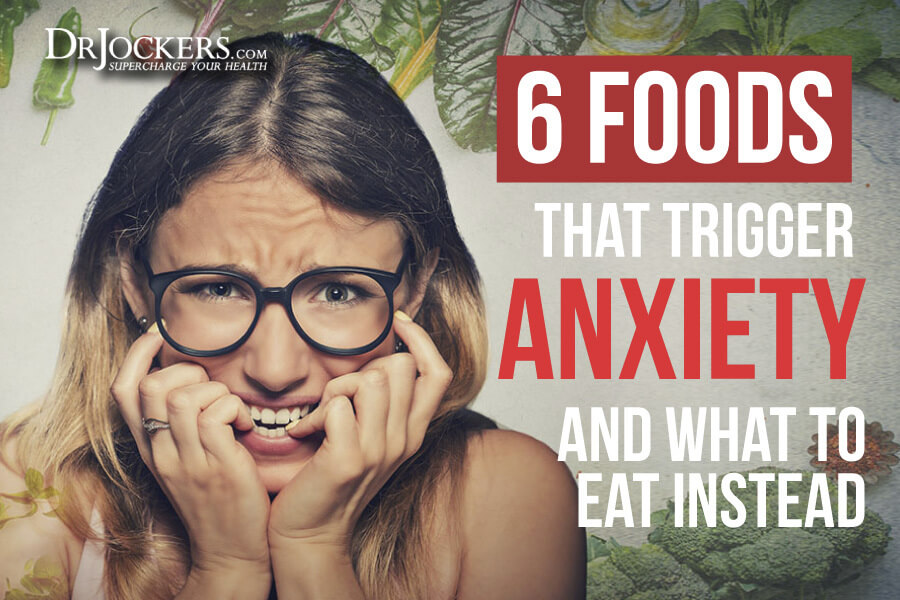 6 Foods That Trigger Anxiety and What To Eat Instead
6 Foods That Trigger Anxiety and What To Eat Instead
Anxiety is familiar to all of us. We all know the nerves and fear before public speaking, important events, and new dates. However, for many, anxiety is a more serious issue. Anxiety disorders affect about 40 million adults in the United States alone. They are the most common mental illness. The good news is that it is absolutely possible to reduce anxiety (1). The first step is to discover what activities are acting to trigger anxiety within you.
In this article, you’ll learn what anxiety is, its symptoms, and the factors that trigger anxiety. I will share how to reduce anxiety naturally through an anti-inflammatory healing diet, a healthy lifestyle, and appropriate supplementation.
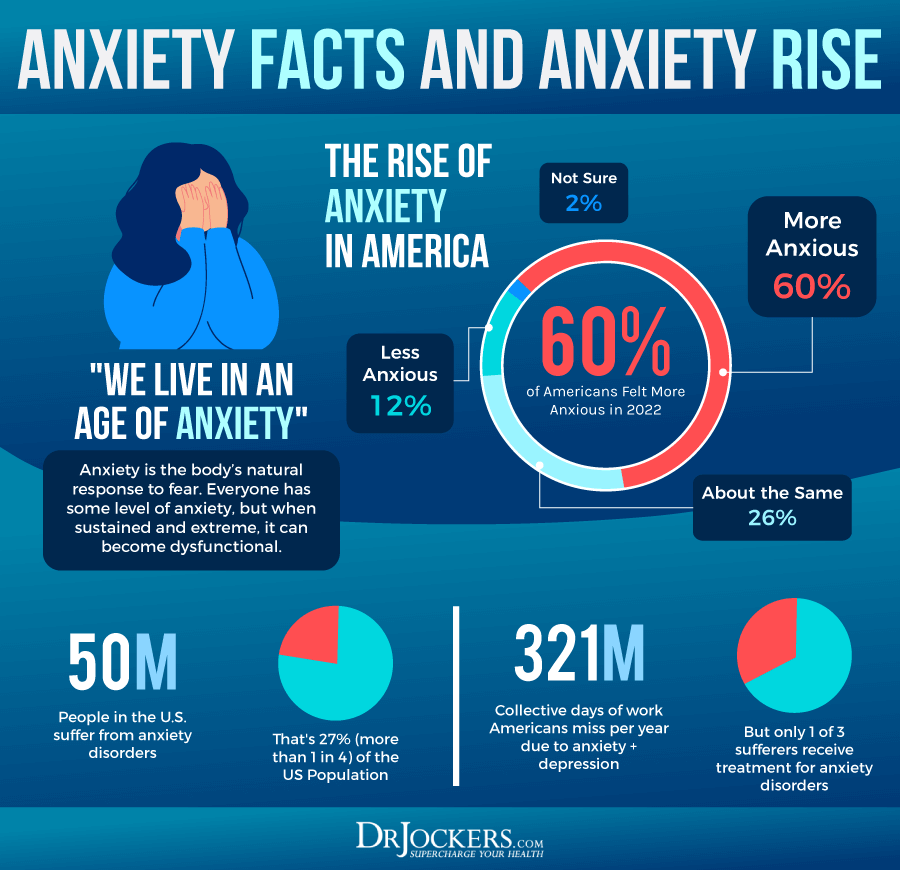
What Is Anxiety
Anxiety is a fear or worry about something happening in the future, such as perceived to be stressful, dangerous, or unfamiliar situations. It’s a natural response to stress.
Occasional anxiety is completely normal. We all experience jitters, nerves, or fear from time to time before important events, a job interview, or public speaking. However, experiencing intense, excessive, or persistent anxiety, fear, or worry can interfere with the quality of your life and health.
Persistent and intense feelings of anxiety can be hard to control and may hinder your daily activities, job, school work, relationships, and social life. Some people even experience panic attacks characterized by sudden feelings of anxiety or fear that may last for several minutes or longer.
If you’ve been experiencing anxiety for six months or longer that is interfering with your life, you may have an anxiety disorder, such as generalized anxiety, social anxiety disorder, phobias, or another form of anxiety. However, even if you only experience occasional or mild anxiety, it is beneficial to look into the root causes of the issue and reduce anxiety triggers.

Symptoms of Anxiety
The symptoms of anxiety may differ from person to person depending on the situation and the form of anxiety you have. You may experience a racing heart, or you may even have scary panic attacks or nightmares (2, 3, 4, 5).
Common signs of anxiety may include:
- Increased heart rate
- Rapid breathing
- Feeling tense
- Feeling nervous
- Having a sense of danger
- Restlessness
- Trouble concentrating
- Sense of stress, distress, dread, or worry
- Intense general fear or worry
- Intense fear or worry about a specific situation, place, person, or activity
- Feeling out of control
- Trembling
- Sweating
- Feeling tired or weak
- Gastrointestinal (GI) distress
- Difficulty falling asleep
- Feeling a disconnect between your body and mind
- Painful or worrisome thoughts or memories you are unable to control
- Having difficulty controlling fear or worry
- Urge or behaviors to avoid things that may trigger anxiety
- Nightmares
- Panic attacks
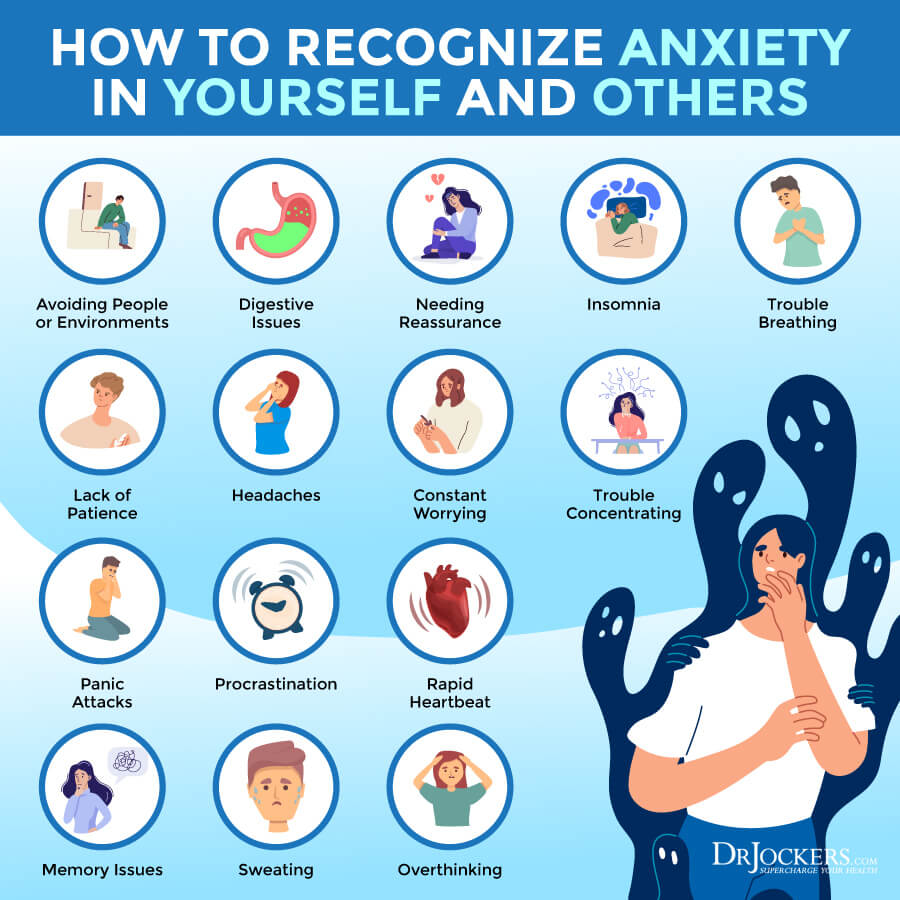
What Can Trigger Anxiety?
When you think about factors that may trigger anxiety, considering conflicts in relationships, social events, painful memories, public events, public performances, financial troubles, painful memories, and personal trauma may come to mind.
These are most certainly important factors that may trigger anxiety. However, you may be surprised to know that your nutrition and overall health may also trigger anxiety. In fact, when your nutrition and overall health are compromised, these commonly considered factors can trigger anxiety even more so. Let’s look at these nutritional factors that may trigger anxiety (6, 7).

Blood Sugar Can Trigger Anxiety
Not eating regularly may lead to a blood sugar drop. Eating a diet high in refined sugar and sugary processed foods also lead to sugar crashes and potentially triggers anxiety. When you eat sugar, your body releases insulin to take care of excess sugar in your bloodstream. However, too much sugar makes it difficult for your body to balance your blood sugar levels and create balance. This leads to sugar crashes and ups and downs that may trigger anxiety, irritability, worry, nervousness, and sadness.
The fact that blood sugar may trigger anxiety is not new knowledge. One of the first research on the topic that blood sugar may trigger anxiety was published in 1966. This study looked at people with reactive or functional hypoglycemia characterized by a relative drop in their blood sugar without reaching the hypoglycemic range.
Subjects experienced anxiety, depression, insomnia, trembling, racing heart, dizziness, and forgetfulness. They were also consuming a diet high in refined carbohydrates and caffeinated beverages. Once they were put on a low-sugar, high-protein, and caffeine-free diet, their blood sugar levels evened out and their anxiety symptoms resolved (8).
Since this discovery, there have been a number of research studies that have shown how blood sugar levels may trigger anxiety. A 2015 cohort study has shown that a high glycemic load may lead to mood imbalances, hence it may trigger anxiety.
According to a 2016 case report, adding more protein, fat, and fiber to a diet may improve anxiety, mood, concentration, energy, and blood sugar issues of a subject with generalized anxiety and hypoglycemia. Once they returned to her former diet of refined carbohydrates, it triggered anxiety and symptoms returned (9, 10).
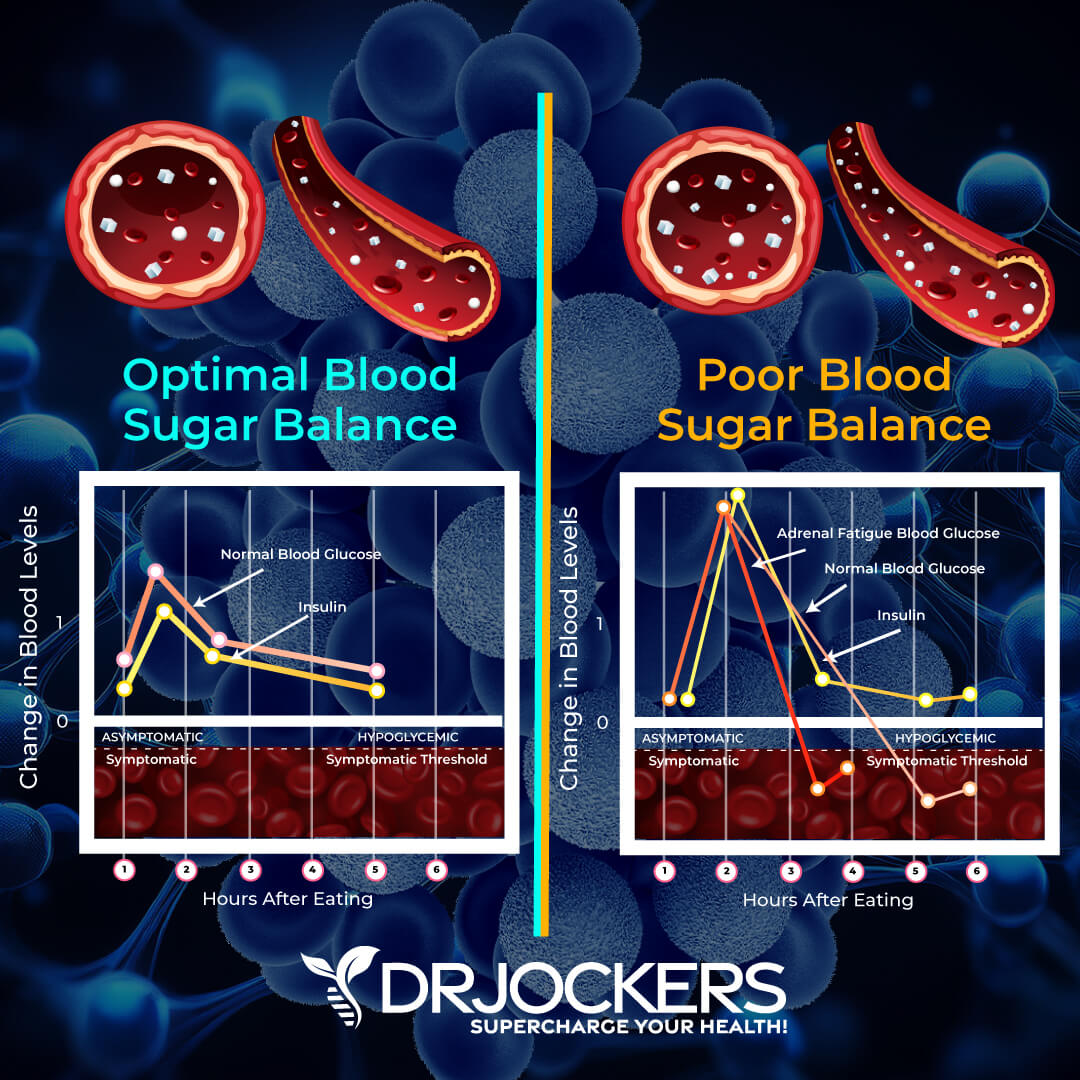
Gut-Brain Axis Dysfunction Can Trigger Anxiety
If you’ve been following me for a while, you know how important your gut health is. Your gut literally affects everything in your body, including your brain and mood. It is not surprising that a gut-brain axis dysfunction can trigger anxiety.
The simplest way to understand the connection between your gut and your brain is to think about a time when you felt nervous before a presentation, exam, date, or another event. Chances are you’ve felt butterflies in your stomach, nausea, stomach pain, or even diarrhea.
As you can see, psychosocial factors can affect your gut and physiology leading to inflammation and affecting the movements of your GI tract. Vice-versa, a compromised gut flora may compromise your mood and brain health and trigger anxiety (11).
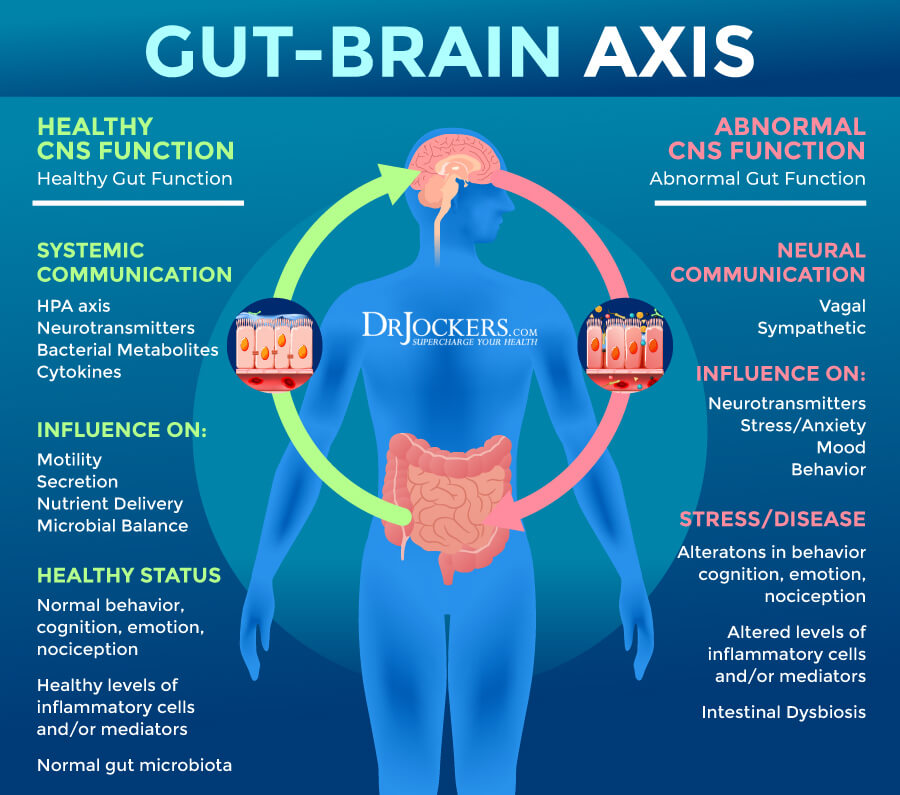
How The Gut-Brain Axis Works
Your gut and your brain communicate through the gut-brain axis. One way they connect is through the vagus nerve which begins in the brainstem and travels down into the gut and stimulates bowel motility and the production of neurotransmitters like serotonin in the gut.
The other way, your gut and brain communicate is through the microbial species that make up your microbiome. When your microbiome and this gut-brain axis are disrupted it may lead to a number of cognitive dysfunctions and mood disorders including anxiety, depression, obsessive-compulsive disorder (OCD), attention-deficit disorder (ADD), sensory processing disorder, autism, Parkinson’s disease, dementia, and Alzheimer’s disease.
A 2016 scientific review discussed that your microbiome has bi-directional effects on your mood through the gut-brain axis. A compromised microbiome may trigger anxiety and lead to symptoms of various mood disorders. Mood disorders, such as anxiety may also compromise the constitution of your microbiome.
A 2017 scientific review agreed that gut dysbiosis and inflammation may trigger anxiety, depression, and other prevalent mental illnesses and probiotics may help to prevent or help treat anxiety and depression by restoring normal microbial balance. A 2019 review has shown that probiotic supplements, probiotic-rich foods, and a gut-healthy diet may help to balance your gut microbiome and lower symptoms of anxiety (12, 13, 14).
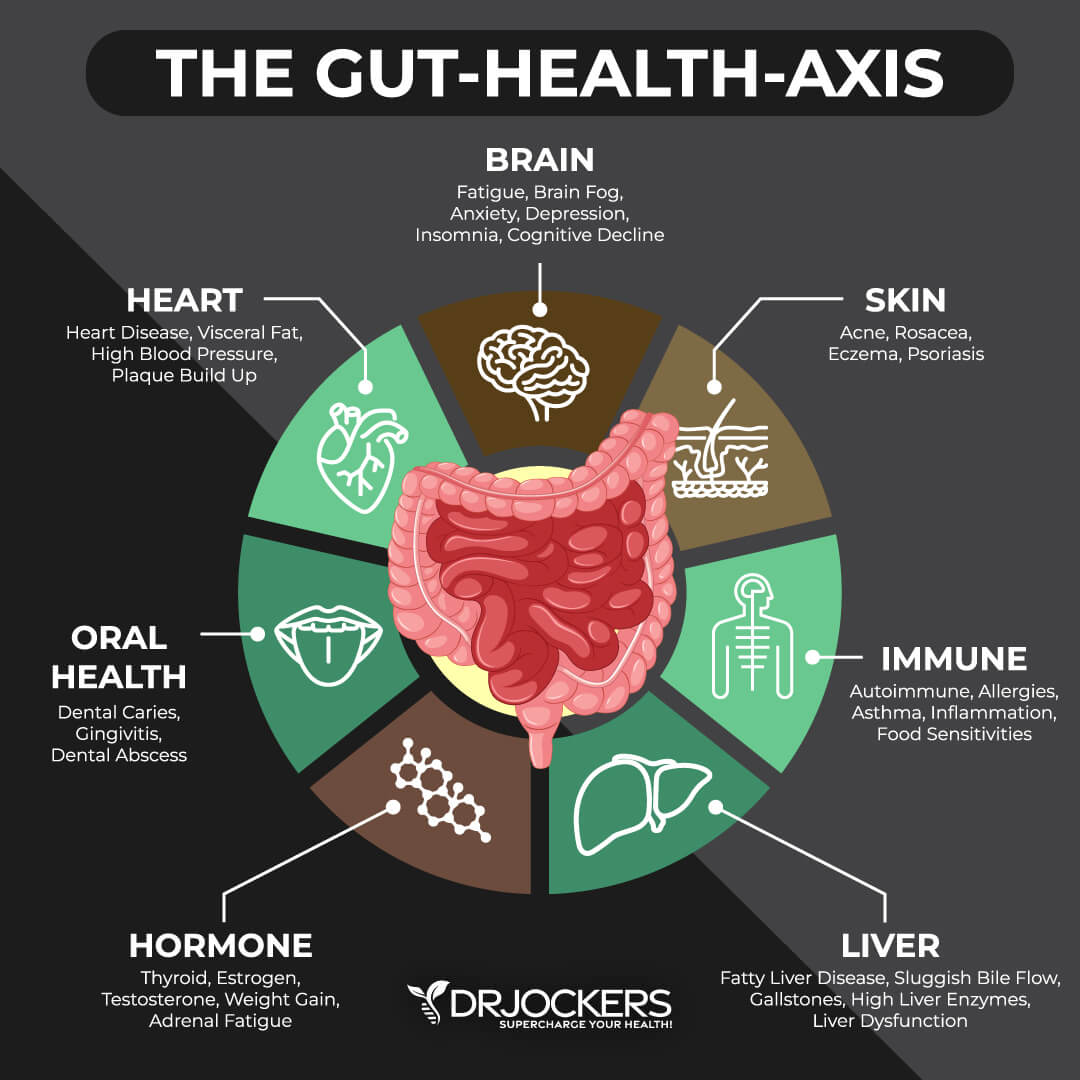
Glutamate-GABA Imbalance Can Trigger Anxiety
Neurotransmitters are naturally occurring chemical messengers that send information throughout your brain affecting your brain health and mood. It is important that they remain balanced to keep your mood and mental health stable as well.
Neurotransmitters, such as gamma-aminobutyric acid (GABA), glutamate, dopamine, serotonin, and norepinephrine are responsible for regulating your emotions and various functions of your body. They have been shown to trigger anxiety and other mood disorders.
Glutamate and GABA take up 90 percent of all neurotransmissions in your body. They are responsible for regulating the emotional response to potentially threatening stimuli that may trigger anxiety. 2015 research has shown that GABA imbalance may trigger anxiety and balance may help anxiety relief. 2010 peer-reviewed research has discussed the importance of looking at glutamate-GABA imbalance as it may trigger anxiety (17, 18).
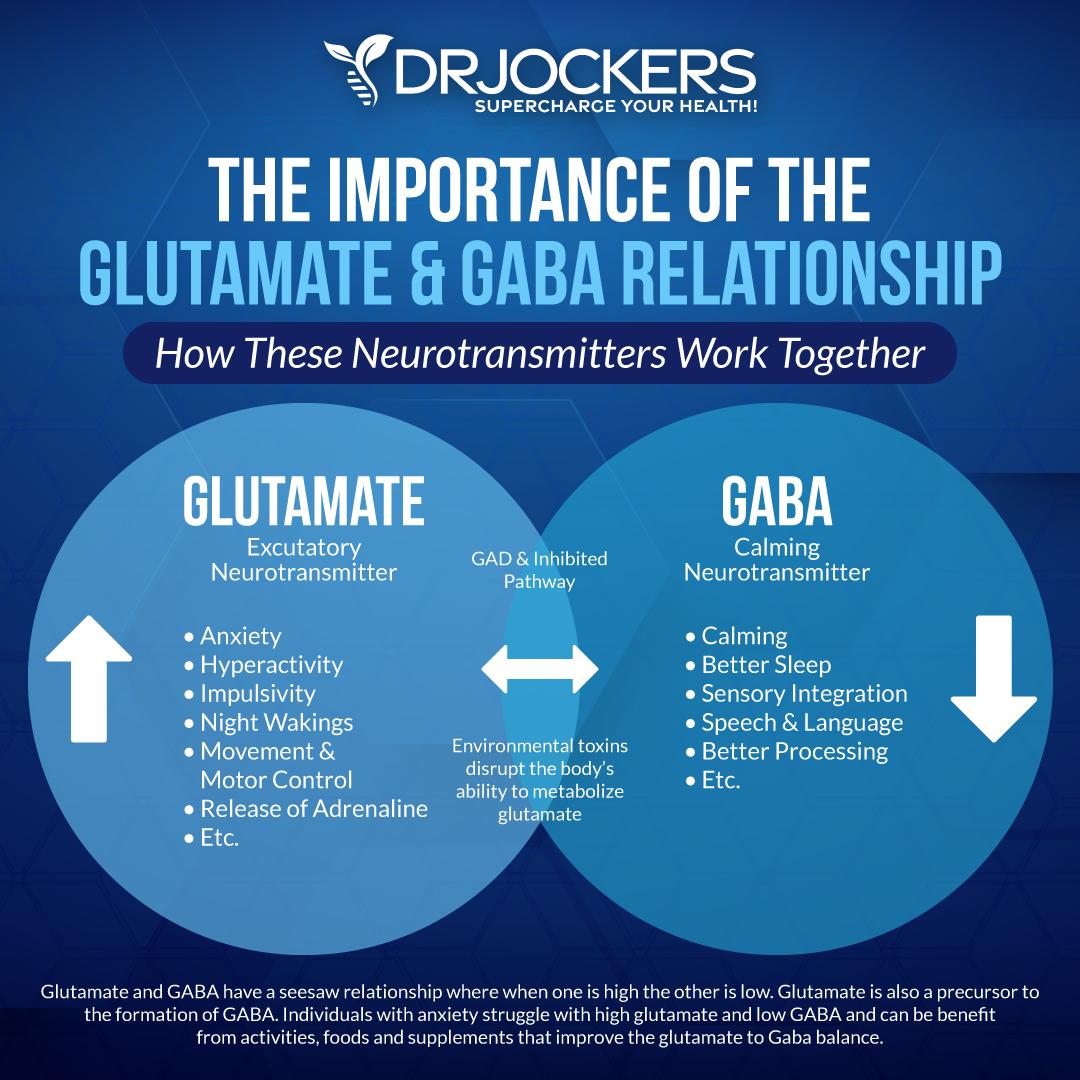
Glutamate and GABA Balance
Glutamate is the main excitatory neurotransmitter in your body. It is involved in every neural pathway in your body, including the ones that affect, relieve, or trigger anxiety. N-methyl-D-aspartate receptor (NMDA) is an important glutamate receptor and ion channel protein located in the nerve cells that are relevant for anxiety.
NMDA may benefit learning and memory; hence it may allow you to unlearn anxiety-provoking behaviors and thoughts and may enhance the benefits of cognitive-behavioral therapy (CBT) to reduce reactions to thoughts and situations that trigger anxiety (15).
GABA is the main inhibitory neurotransmitter that may help with anxiety relief. This is why doctors may prescribe barbiturates or benzodiazepines that may increase GABA and relieve anxiety. However, these medications do not bind to GABA receptors and also may lead to increased tolerance levels, addictions, toxicity, and serious or even fatal side effects. Instead, there are natural solutions that I will discuss later in this article (16).
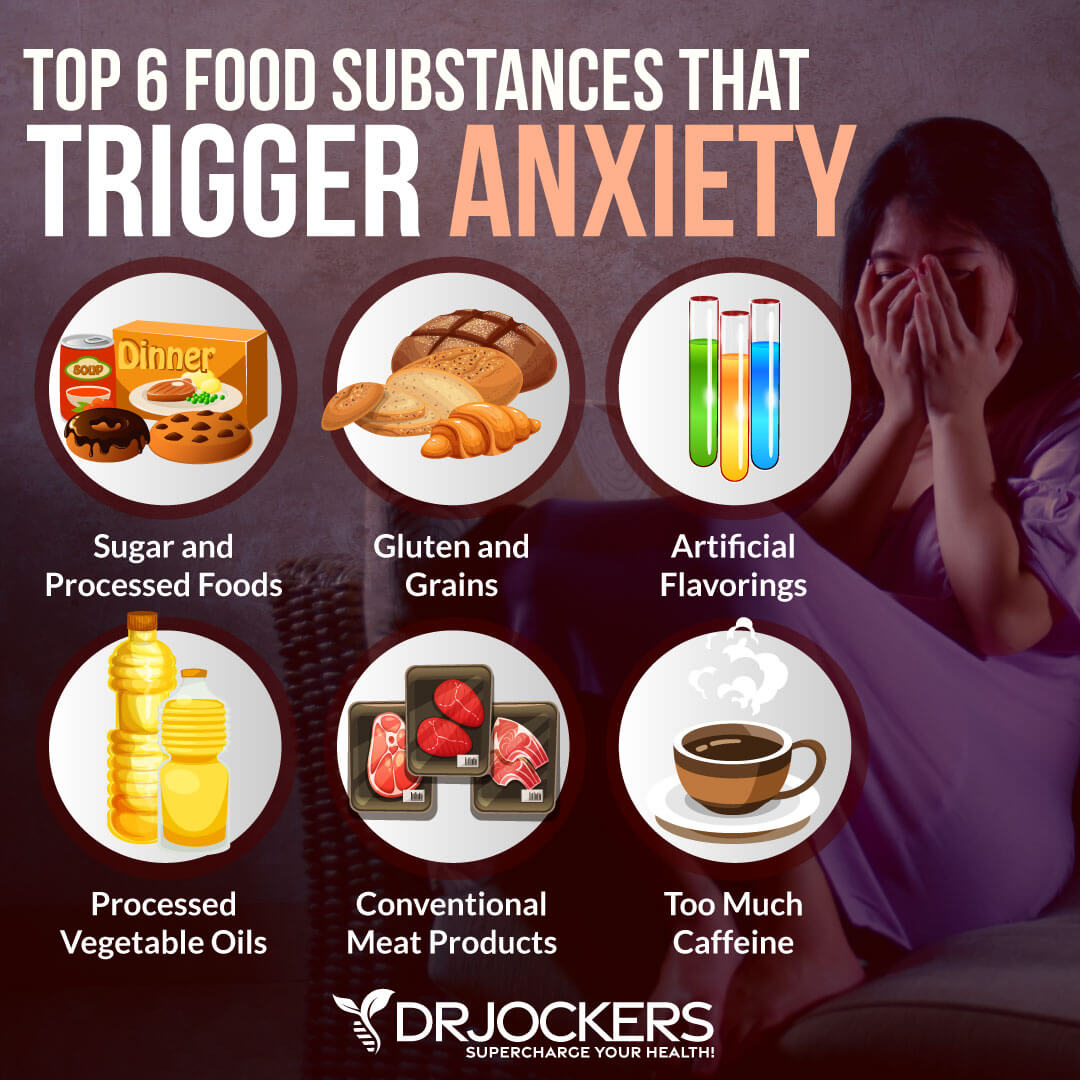
Foods That Can Trigger Anxiety
If you have anxiety, it is incredibly important to look at your diet. Inflammatory foods may increase inflammation, pain, and the risk of health issues. They may also trigger anxiety (19, 20).
Sugar and Processed Foods
Refined sugar is incredibly inflammatory. When you eat too much sugar, your body simply cannot process it quickly enough. As a result, it releases pro-inflammatory messengers called cytokines that may lead to physical and mental health issues.
Processed foods are not only high in sugar but are usually high in other anxiety-triggering substances such as processed vegetable oils, artificial flavorings, gluten, and additives. Consequently, sugar and processed foods may both trigger anxiety.
Gluten and Grains
Gluten is a protein found in a variety of grains. Gluten is particularly problematic for those with Celiac disease or gluten allergies. However, a large number of the population is sensitive to gluten and may experience inflammation, pain, and health issues from it. Gluten may also trigger anxiety. For some, even gluten-free grains are difficult to digest and trigger anxiety.
Artificial Flavorings
Artificial ingredients are designed to enhance flavor, texture, or color, or to extend shelf life. Aspartame and MSG are two particularly dangerous artificial flavorings that may trigger anxiety.
However, you need to be careful with all artificial ingredients and other additives or preservatives, including monosodium glutamate, artificial coloring, high fructose corn syrup, guar gum, sodium benzoate, trans fats, and any artificial flavoring. They all may lead to inflammation, increase the risk of disease, and trigger anxiety.
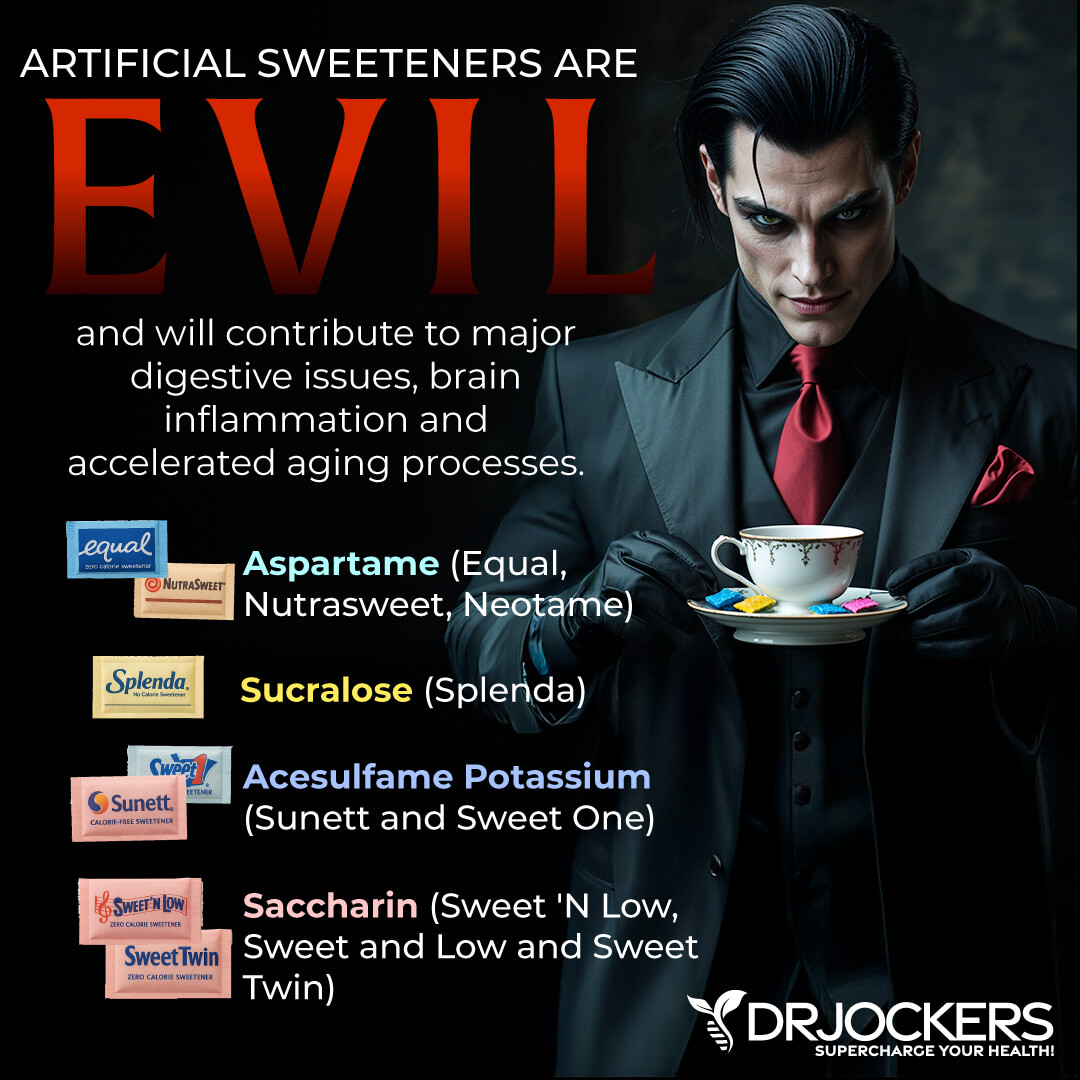
Processed Vegetable Oils – Seed Oils
Processed vegetable oils are not really “vegetable oils” but seed oils. These seed oils include corn oil, canola oil, soybean oil, safflower oil, cottonseed oil, and peanut oil. They are all high in omega-6 fatty acids and have low oxidative stability.
This means that they are also inflammatory and contribute to pain and health issues. Processed seed oils may trigger anxiety as well.
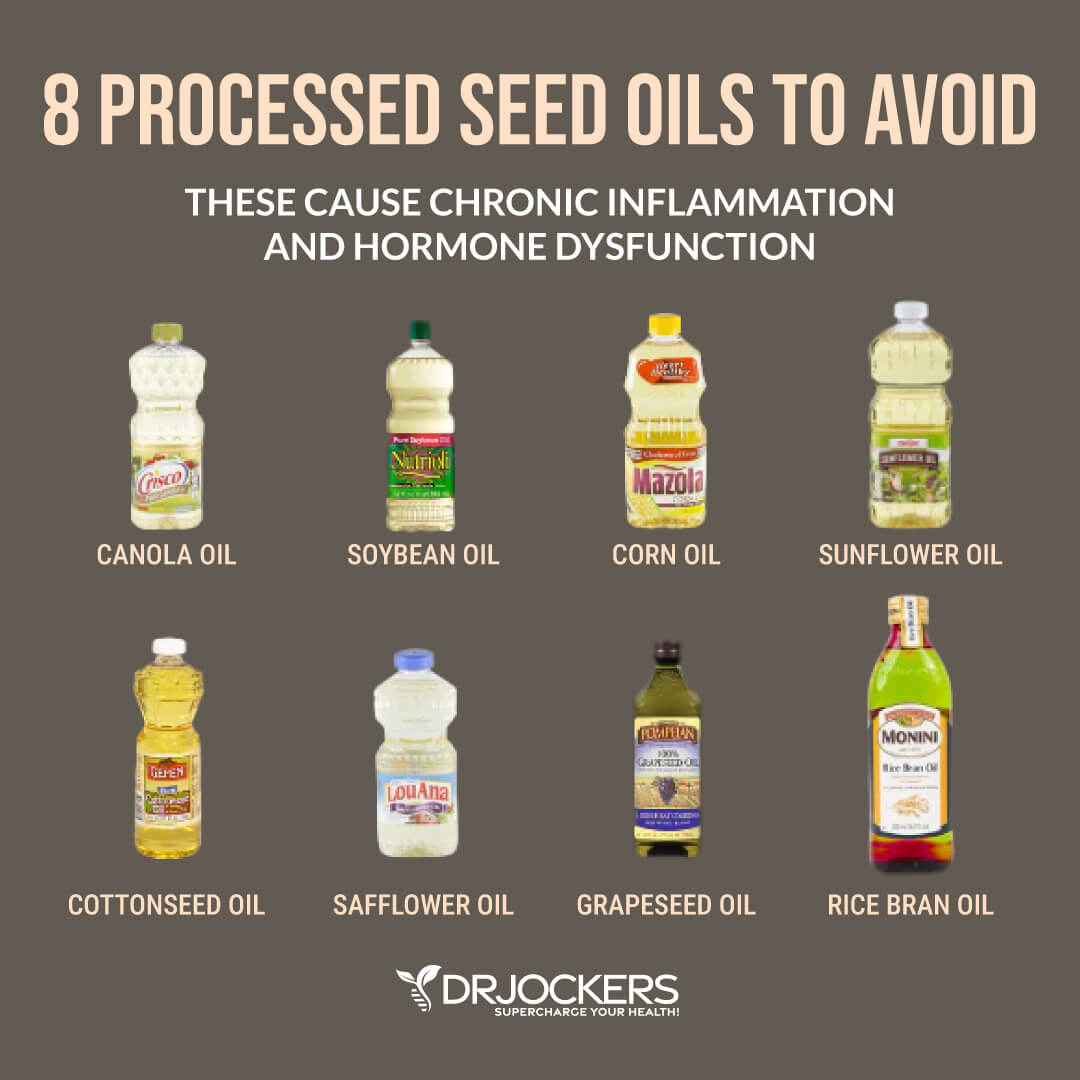
Conventional Meat Products
I believe that eating meat is important for your health. However, the kind of meat you eat absolutely matters. Animals raised for conventional meat products are not treated by the highest of standards.
They are treated with hormones and antibiotics and fed with grain instead of grass. As a result, conventional meat products are inflammatory and may trigger anxiety.
Too Much Caffeine
Caffeine may trigger anxiety. Coffee and other caffeinated drinks, such as sodas and energy drinks may cause jittery effects and stimulate a flight or fight response similar to anxiety. Sodas and energy drinks are also full of sugar and artificial ingredients that can further trigger anxiety.
To learn more about the dangers of the top inflammatory foods and how to avoid them, read this article.
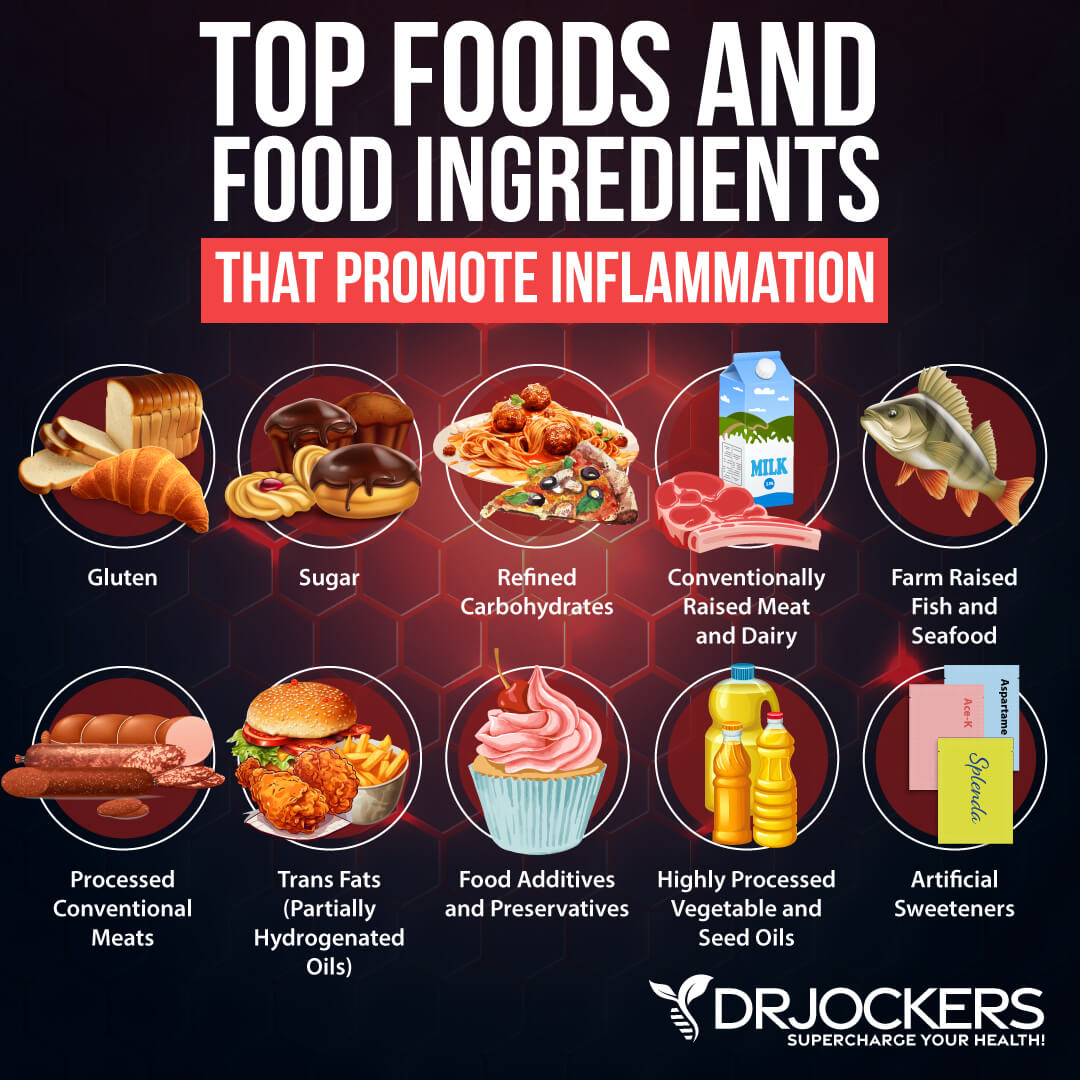
How To Reduce Anxiety Naturally
Conventional treatments of anxiety often include pharmaceutical medications. However, these medications usually serve as a bandaid without addressing the cause or fully solving the problem. You will be happy to learn that it is possible to reduce anxiety naturally through a nutritious diet, a healthy lifestyle, and appropriate supplementation.
The following are key strategies to take on your way to reducing anxiety and living a more enjoyable life. Be sure to apply the first 7 on your own and if you are still struggling with anxiety then it is time to work with a functional health practitioner to customize a specific plan for you to get well.
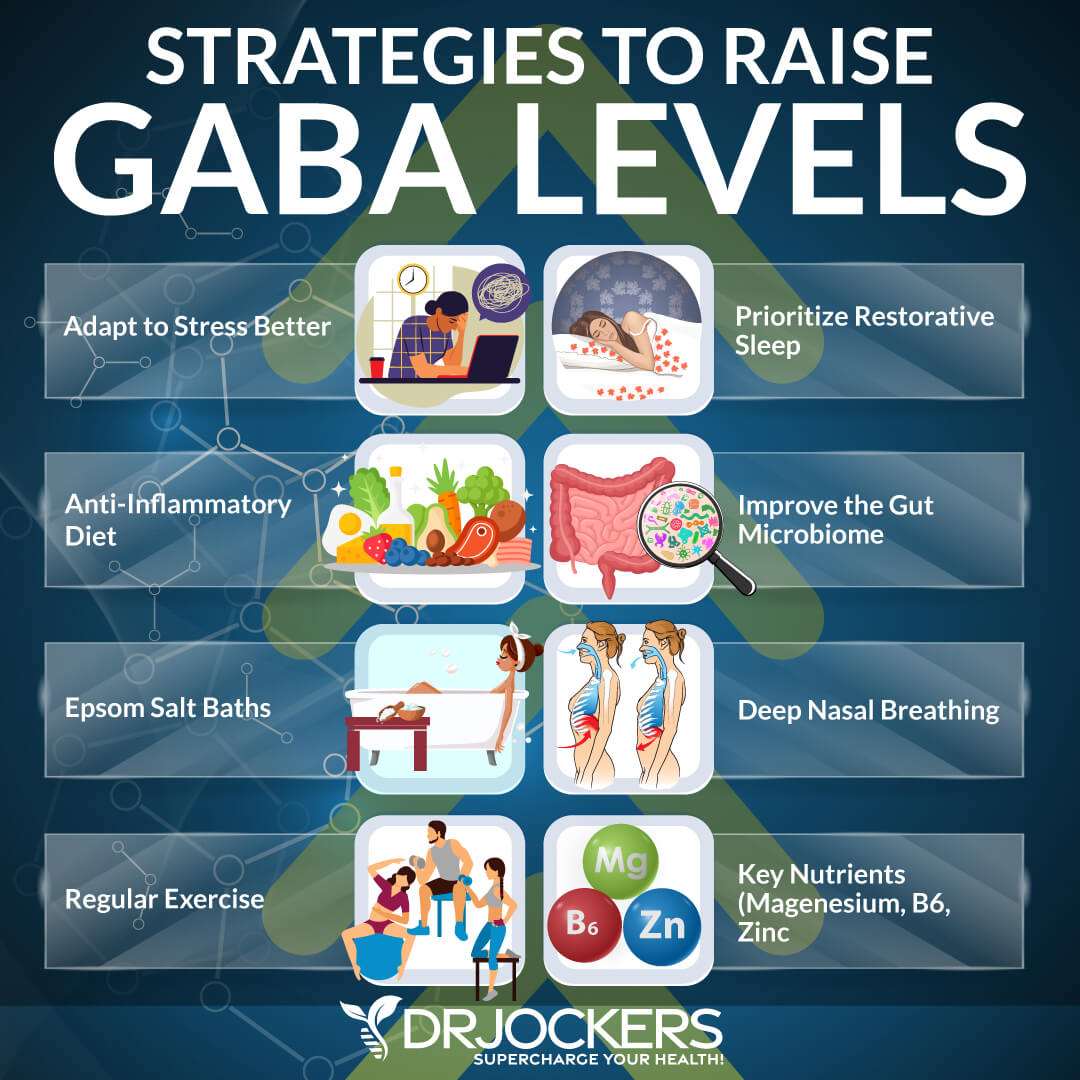
Anti-Inflammatory Healing Diet
An anti-inflammatory healing diet is essential for your overall health, including your mental health. Remove any foods that may trigger anxiety, including refined sugars, processed vegetable oils, processed foods, junk foods, artificial ingredients and flavorings, gluten, grains, conventional meat products, caffeine, and toxins.
Instead, turn to nutrient-dense, anti-inflammatory and healing foods, including leafy greens, such as kale, spinach, and Swiss chard, non-starchy vegetables, such as cucumber and celery, herbs and spices, such as turmeric, ginger, rosemary, and cinnamon, low-glycemic index fruits, such as berries and lemon, healthy fats, such as avocados, organic ghee and butter, and coconut oil, clean protein, such as organic grass-fed beef, pasture-raised poultry, wild-caught fish, wild game, and free-range eggs, nuts and seeds for fiber, and fermented foods, such as kimchi, sauerkraut, and kefir.
To learn more about the benefits of an anti-inflammatory healing diet, I recommend this article.
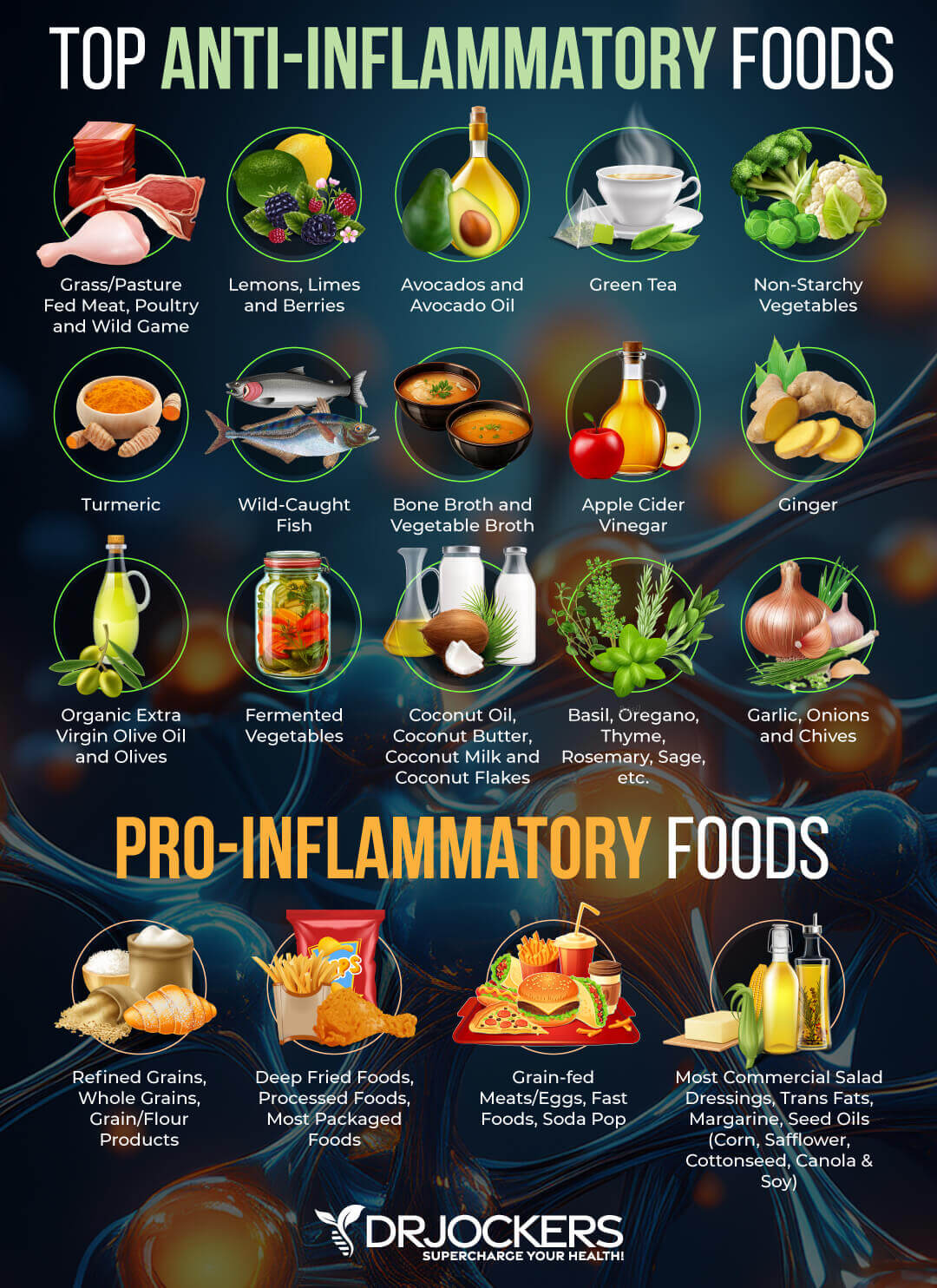
Remove Food Sensitivities
Food sensitivities may trigger anxiety. Common food sensitivities include sugar, gluten, corn, soy, dairy, and alcohol. However, you may have some personal, less common sensitivities as well.
To identify your food sensitivities, you may try an elimination diet or an at-home pulse test as I explain it here. You may also try a blood test. In this article, I discuss different methods of food sensitivity testing and why I recommend the Cyrex Array 10-90X as a reliable method of food sensitivity testing.
Once you have identified your food sensitivities, it is important to remove them from your diet as they may trigger anxiety and lead to inflammation, pain, and health issues. You may also learn more about removing your food sensitivities from this article.
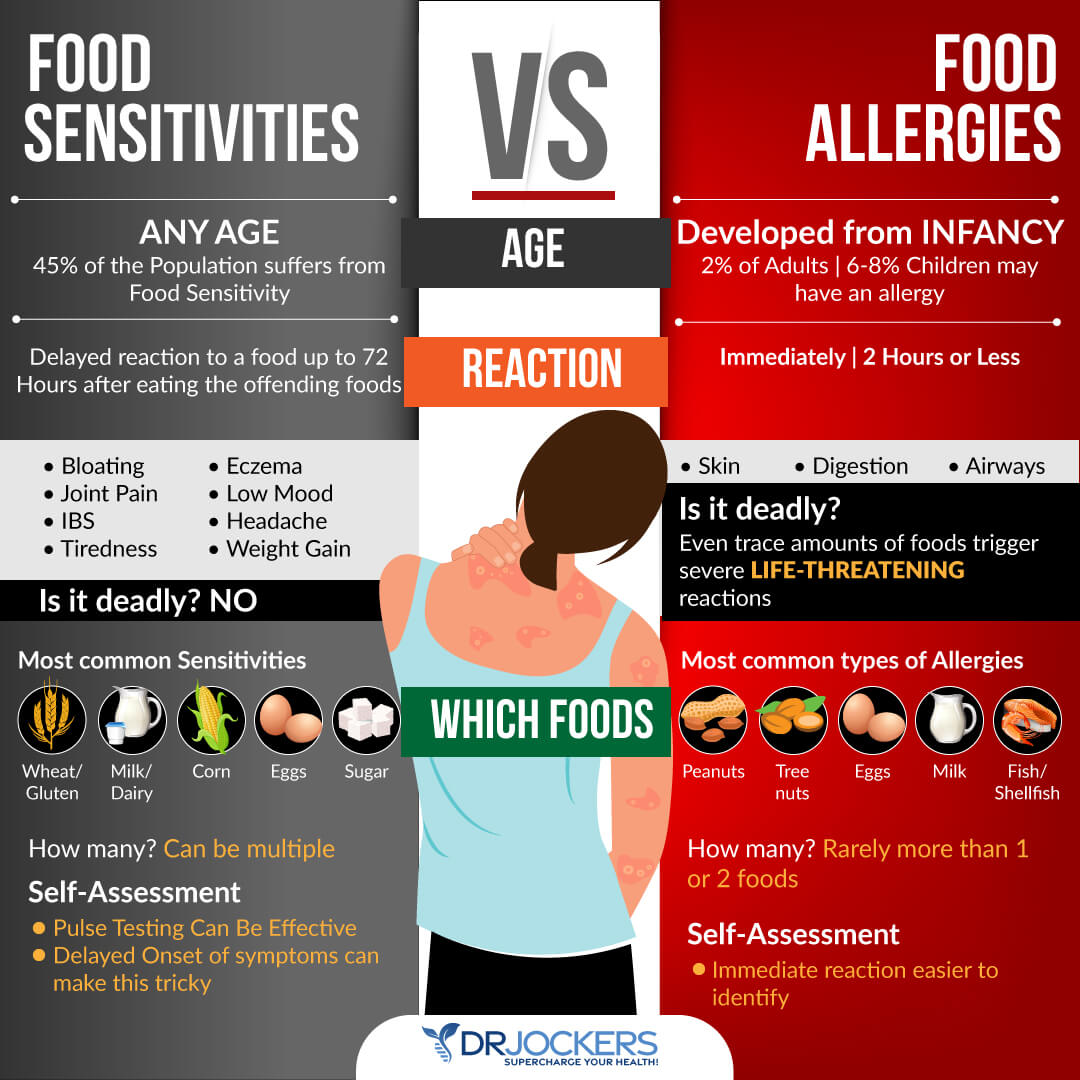
Reduce Stress and Prioritize Good Sleep
Anxiety is your body’s natural response to stress. High and chronic stress and a lack of quality sleep may trigger anxiety. To reduce anxiety, it is crucial that you reduce stress and prioritize good sleep.
Try prayer, breathing exercises, daily gratitude, journaling, spiritual practices, nature walks, and quality time with loved ones to reduce your stress levels. Practice positive self-talk and learn to reframe your thoughts.
To support your sleep cycle, aim to go to bed and wake up at the same time each day. Develop a nighttime routine that works for you. Turn off electronics close to bedtime. Engage in relaxational activities and perhaps sip on a calming herbal tea before bed. Invest in a comfortable bed, sheets, and pillows.
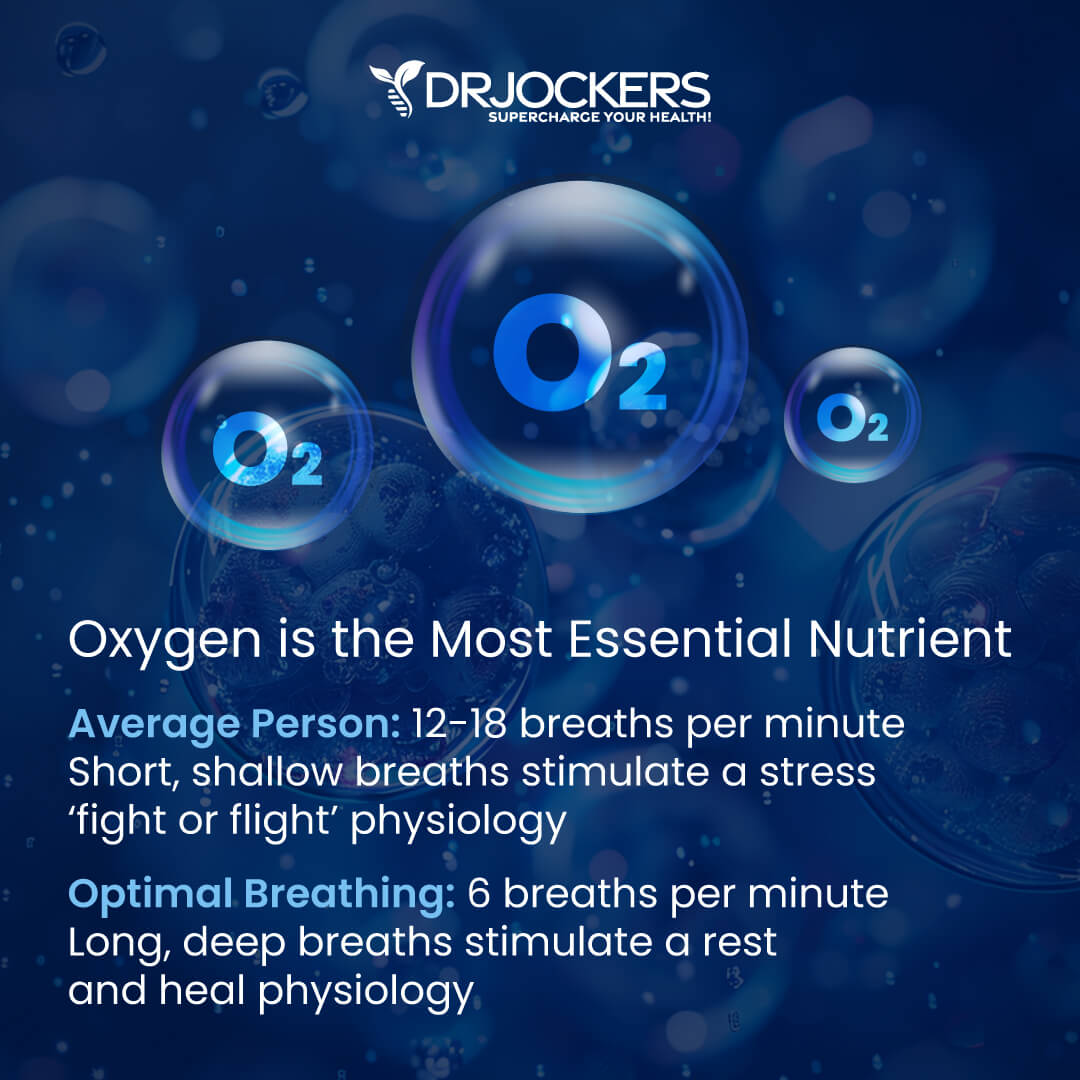
Improve Gut Health and Bowel Motility
Your gut affects your brain and mood, and compromised gut health and gut flora imbalance may trigger anxiety. Improving your gut health and bowel motility is clearly crucial to prevent anxiety. Eating an anti-inflammatory is the first step, however, there are other ways to support your gut health.
It is really important to calm your body and eat your food in a relaxed state. This will help your body produce enough digestive juices to adequately break down, sterilize, and absorb the nutrients you are putting inside of it. When you are stressed out, you will not be able to digest food effectively. If you eat on the go often, it is best to do smoothies and things that are light and easy on your digestive system during these more stressful periods.
When you are dealing with an underlying gut health issue, enzymes and hydrochloric acid (HLC) may benefit your digestion. Super DZyme supports the healthy digestion of macronutrients, enhances nutrient absorption, supports the breakdown of polysaccharides, supports pancreatic and brush border enzyme function, and helps the breakdown of lactose. Acid Prozyme supports healthy stomach acid production, reduces microbial overgrowth, improves protein and amino acid digestion, helps nutrient absorption, and reduces digestion discomfort.
Taking high-quality probiotics is essential for ensuring a healthy gut flora balance. SBO Probiotics – Ultimate support for healthy digestion, nutrient absorption, energy levels, mental health, and overall health. It’s made with soil-based organisms (SBOs) and prebiotics to provide the highest quality probiotic gut health support possible.
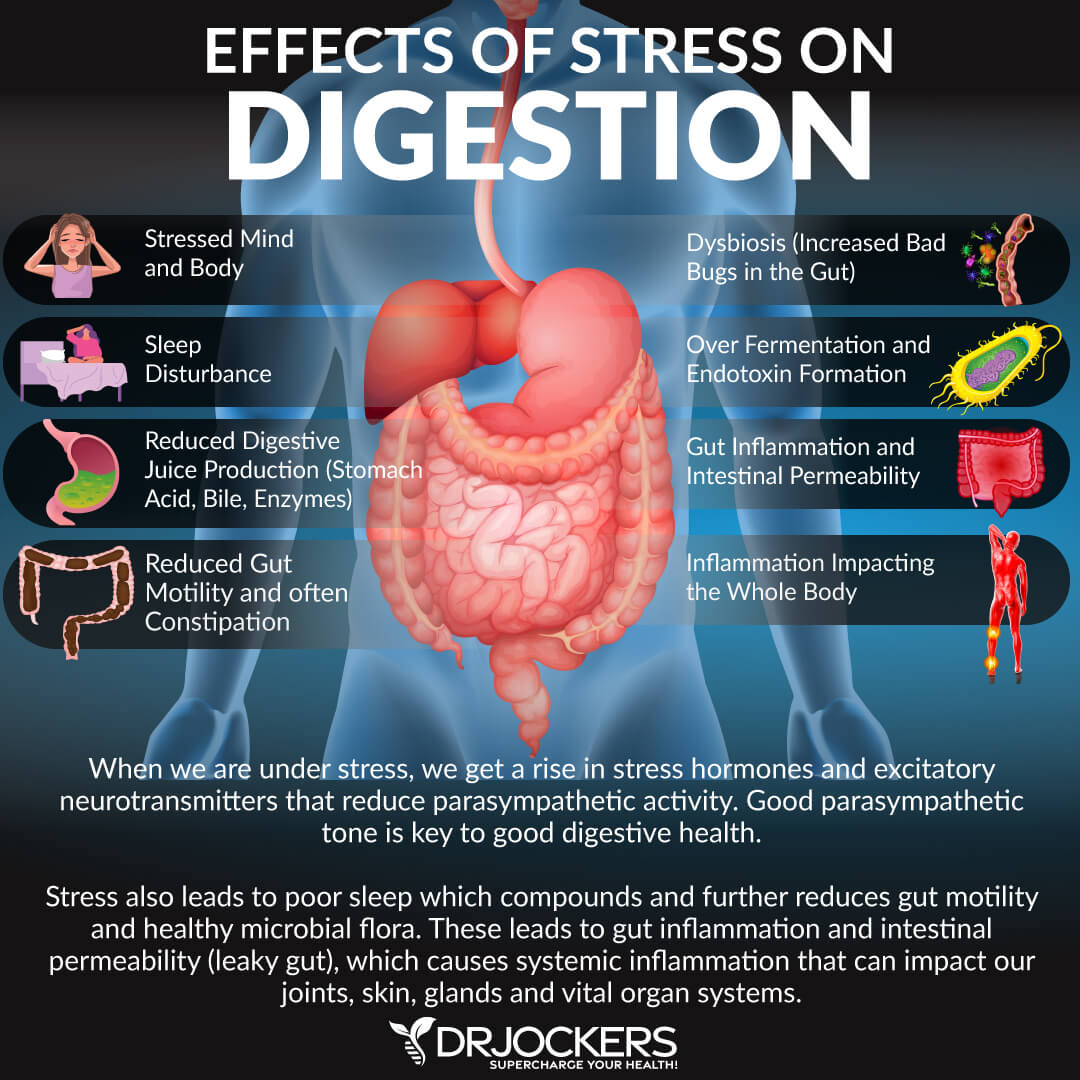
Move Your Body Properly
Physical exercise has enormous benefits for your mental health. A lack of movement may trigger anxiety and increase mood imbalances. Research has shown that regular exercise can reduce the frequency and intensity of anxiety and panic attacks (21).
Exercise regularly, 20 to 30 minutes 5 times a week, and move your body every day. Mix up your routine and find different forms of exercise that work for you. I am personally a fan of high-intensity interval training (HIIT), but you may find something else that works for you.
Swimming, hiking, running, are biking are great for cardiovascular health and anxiety relief. Weight lifting, resistance training, kettlebell workouts, and CrossFit are fantastic for your strength.
Yoga has been shown to have both physical and mental health benefits and may help to combat anxiety. Pilates and barre workout is low impact exercises that help to build strength while calming your mind as well.
Moving your body doesn’t have to mean structured workouts. Move your body daily by stretching, going for a short walk during lunch, dancing to your favorite song, running around with your kids, and playing with your pets. Remember to have fun.
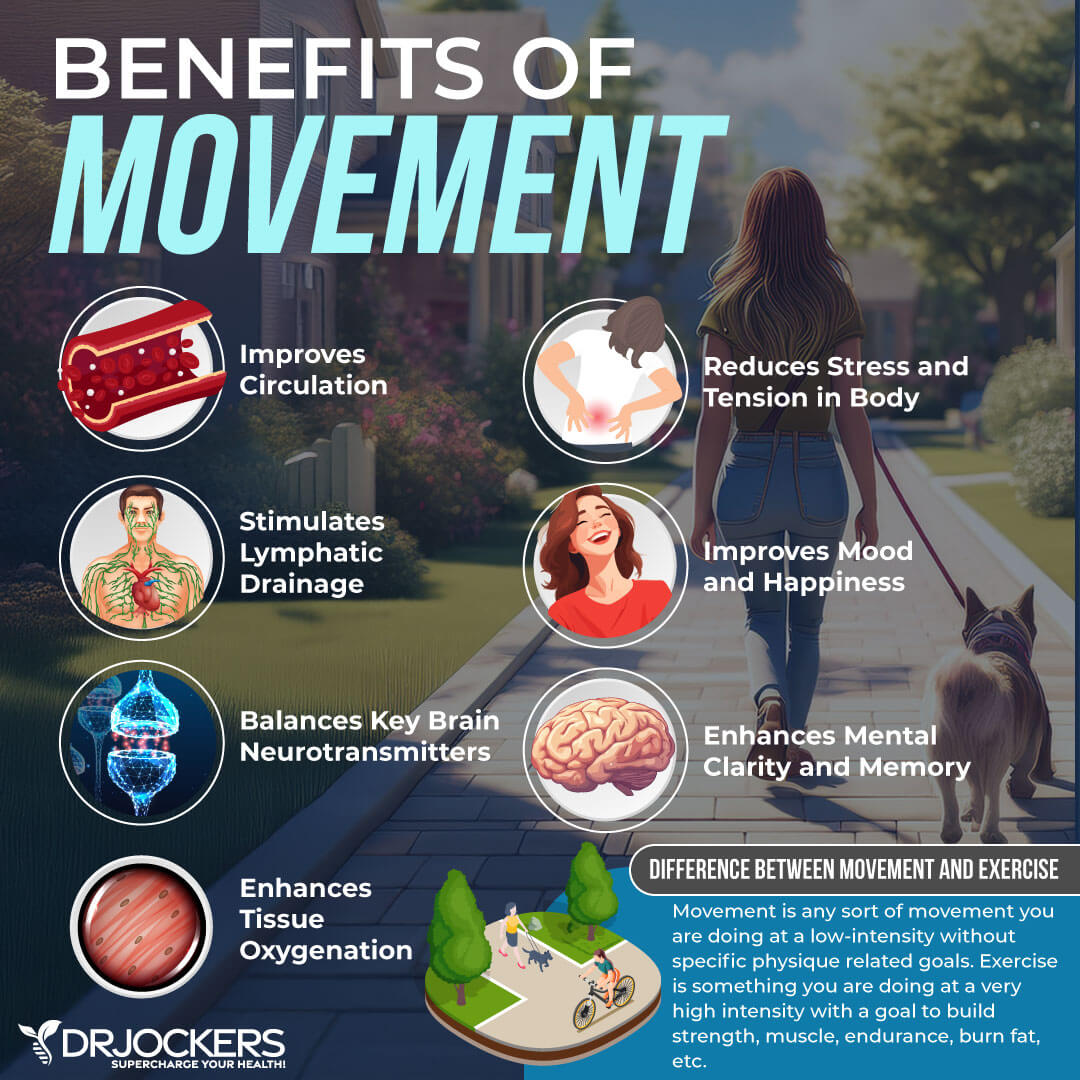
Use Magnesium Daily
Magnesium is present in all cells of the body and is involved in over 300 enzymatic processes, including energy production. Magnesium is the most common nutritional deficiency linked to an array of health issues. Magnesium deficiency may trigger anxiety.
Due to our depleted soils, it is difficult to meet all your magnesium needs even from a nutrient-dense anti-inflammatory healing diet. This is why I recommend Brain Calm Magnesium which is designed specifically to calm your blood sugar, relax your muscles, balance your blood sugar, improve your sleep, and protect your brain (22).
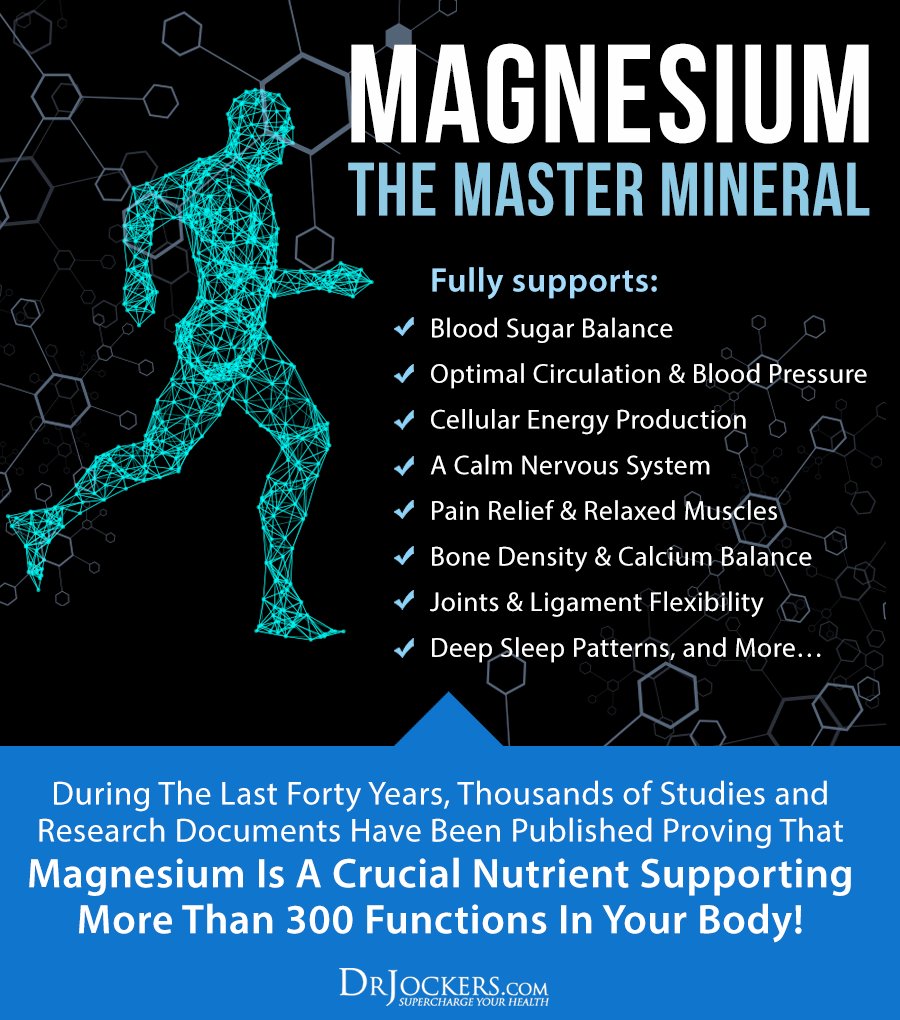
Consider Using GABA Supplements
As you’ve learned earlier, inhibitory neurotransmitter GABA imbalance may trigger anxiety hence you may benefit from GABA supplements to prevent anxiety. I recommend Mood Protect™. It is an advanced formula used to enhance the synthesis of chemical messengers that support calmness, a healthy mood, and a healthy nervous system. T
This supplement contains GABA which is key for relaxing and toning the brain. It also contains 5HTP, L-Taurine, and L-Theanine which are all important for relaxation and brain health. For quick relief, you can also try our GABA Calm chewables which are tasty chewables that increase GABA in your brain quickly and effectively.
Use The Brain Tap System
The Brain Tap System is a brilliant system that helps to restore your brain’s natural ability to balance. It helps to soothe your brain. It enhances relaxation and revitalization. This system provides you with a range of brain waves to achieve balance.
It is an incredibly quick easy, and effective way to improve your brainwaves, lower stress, feel calm and controlled, improve cognition, experience more energy, and positivity, and feel overall healthier. Only 10 to 20 minutes a day can make a tremendous difference in your brain health, mental health, energy, and physical well-being.
Consider Seeing a Functional Health Practitioner
Sometimes it’s hard to combat anxiety alone. If you have tried everything and nothing seems to be working, consider finding a functional health practitioner to help you identify the root cause that may trigger anxiety.
Finding the root cause that triggers anxiety is key to figuring out the best natural nutritional and lifestyle solutions to eliminate anxiety from your life. Our team of health coaches has been trained by Dr Jockers and other advanced practitioners to sort out the root cause and design programs to help people improve their health. For more info on the DrJockers.com team of health coaches go here.
Final Thoughts
Anxiety is your body’s natural response to stress. However, frequent, excessive, and persistent anxiety can seriously interfere with your life and affect your overall health.
Understanding the factors that trigger anxiety and following my dietary, lifestyle, and supplement recommendations, you can reduce anxiety and finally live the happy life you deserve.
Inflammation Crushing Ebundle
The Inflammation Crushing Ebundle is designed to help you improve your brain, liver, immune system and discover the healing strategies, foods and recipes to burn fat, reduce inflammation and Thrive in Life!
As a doctor of natural medicine, I have spent the past 20 years studying the best healing strategies and worked with hundreds of coaching clients, helping them overcome chronic health conditions and optimize their overall health.
In our Inflammation Crushing Ebundle, I have put together my very best strategies to reduce inflammation and optimize your healing potential. Take a look at what you will get inside these valuable guides below!







I used to see Dr.Jockers regularly. We moved to Westlake Oh in February. Do you know of a Dr. in this area that is connected with Dr. Jockers in any way? Dr. Jockers greatly helped my autoimmune illness. I will be waiting to here back. Hopefully there is someone closer than 13 miles away!
Great to hear you are doing so much better Kathryn! Unfortunately, we do not know anyone in that area. However, our team does work with long-distance clients via phone or Video cam https://drjockers.com/long-distance-coaching/
No but welcome to NE Ohio. Rob
After a lot of experimentation with supplements like GABA, without any benefit that I could perceive, I finally stumbled across glycine. Wow, did that ever do the trick for me! I now take 2000 mg (four capsules) of glycine supplement sublingually every night on my way to bed, and drink two or three cups of homemade “bone” (actually chickens feet) broth every day. I’m guessing that my sympathetic nervous system was working just fine, not over-active, but my parasympathetic system’s activity was horribly low, so the two were out of balance. Glycine is a very simple amino acid, which, I’ve read, happens to also be used as a neurotransmitter in parts of the parasympathetic nervous system. Most people’s bodies are capable of manufacturing all of the glycine they need for this and other purposes. But some people, like myself, need to get an unusually large portion of it from our diet. Now that my chronic glycine deficiency has been corrected, I’d say something like 90% of what used to be unrelenting, day-in and day-out tension is simply gone.
Great to hear you found this! One thing you would be interested in is our Bone broth protein which is very high in glycine https://store.drjockers.com/products/bone-broth-power-protein?_pos=2&_sid=bf5d2396e&_ss=r
Thank you for this.
I believe you need to revise your #’s on the people affected in America to hundreds of millions.
We are also getting upgraded with Huge energy blasts as well that causes anxiety.
It is critical to do daily energy and physical clearings/detox in order to remain in physical, emotional but most of All Spiritual Balance!
With Honor and Gratitude
Dr. Jockers, in the infographic above where is says no hydrolyzed anything, does that include hydrolyzed collagen peptides products? Thanks.
Hydrolyzed collagen peptides are clean and free of MSG
Dr Jockers, may I ask you about nutritional yeast, since this is B12, and would this be classed in your list above to avoid for those who may have anxiety
It can be helpful Sylvia!
Hello,
Some very popular collagen powder products contain glutamic acid in their list of amino acids. To verify, that is msg? Any tips on how to choose a clean collagen powder?
Thank you for your extremely helpful articles!
Hey Rose, no you don’t need to worry about this as glutamic acid is an amino acid that is virtually all foods. You just want to avoid it as a synthetically added compound.
Hey Dr. Jockers,
What should a 54 year old female be taking daily for good health? I take all kinds of health stuff, no medications, and eat for the most part healthy. I do have soreness in my joints at times. I have been tested for food tolerances. Which include gluten, rye, barley, yeast, and dairy. I do avoid these foods the best I can for the past 12 years. I would like to take just a few things daily verses all the things.
Thanks for your time and knowledge, Cindy
Hey Cindy, for joint pain, I would recommend taking the Inflam Defense: https://store.drjockers.com/products/inflam-defense
Also, taking a good probiotic can be very helpful as well: https://store.drjockers.com/products/sbo-probiotics-ultimate
For joint pain I gave up sugar/carbs and nightshades (tomatoes, eggplant, potatoes) for the most part and rarely have any flare-ups.
Yes these diet changes are key! Thanks for sharing Janet!
Hi , my age is 41 & I have been suffering from anxiety for the last 4 years , I was anxious all the time , have used SSRI’s for almost 2 years , nowadays I have periodical anxiety , in the evening it gets started and remains for almost 2-3 hours , if I am outside of my home I want to reach home as soon as possible , can,t spend any night outside the home feels a strange fear without any cause , may I know why it happens ?
Really sorry to hear this! Be sure to follow the strategies in this article and consider working with a counselor as well! Praying for your healing! Blessings!
Get off the SSRI – these things are actually pretty useless for much – they are a bit like giving morphine for the pain of a broken arm but not putting the arm in a cast – – they merely make you feel better but do nothing for the underlying condition. Get a full blood work up – and only compare with optimum levels and especially your vitamin D – very likely to be low and Vitamin Bs and also get magnesium tested – get the Red blood cell test not just the blood itself. So often what people call mental health is brain health – without a healthy brain you will have problems – get brain envy as Dr Daniel Amen calls it – good nutrition (by the way just because you are eating vegetables and fruit and they are maybe organic – does not mean they are full of nutrients – food quality is a third of what it used to be 70 years ago, good exercise, good sleep help immensely.
Thanks for sharing!
Hello M Tahir Khan,
Because your anxiety is closely linked to time, you might have good results using acupuncture. If the anxiety begins between 5-7 p.m. that is Kidney time. Between 7-9 p.m. is Pericardium time and 9 – 11 p.m. is Triple Warmer time. You might be able to get relief by balancing the flow during the timeframe that you’re anxious. Good luck to you.
Ultimate essay, Dr J!…Many thanks… however, this ‘ol vegan mechanic spent way to many minutes chuckling about the fact that ALL animals, no matter how they’re raised, feel fear in every cell & smell death just before their violent demise…sooo, as the ancients have said, all those cells are saturated with stress hormones, which are then eaten by stressed humans, adding more fuel to the raging anxiety fire…cheers
Agree !
so do plants…
https://allthatsinteresting.com/plants-defense-mechanism
You always write the
Most thorough and well researched articles I want to print them all out! Thank you.
Thank you for all your support Kim! Blessings to you!
I am with “Kim” just looked at your latest post today and you do an incredibly detailed (love graphs) job of getting the point across. I know how much goes into the details because I used to be a graphic designer!
Well done!! Thank you for all this AMAZING free information. I am destined to become one of your best “product” customers! 🙂
Thanks so much for all your support Connie! Blessings to you!
Dr Jockers, please advise me on Covid Long Haulers. I have had chronic flu symptoms for over two years since I got mild Covid. Headaches, terrible fatigue, nausea, dizziness, brain fog 6 of 7 days a week. I was an athlete. Now any exercise makes me really sick. Goes into a few days of flu symptoms. It’s horrible. Any ideas? I don’t eat sugar. Have a Healthy diet. Im on social security so can’t afford much. Im a horse trainer feeling so frustrated. Please
Help!
Hey Melinda, I am so sorry to hear about this! Yes we have a detailed article here: https://drjockers.com/post-viral-syndrome/
Thank you for your informative article. So great! Can you post good brands of the Vibe machine and red light.
One of your charts concerning anxiety contains inaccurate information. It claimed that 50 million people was 27% of the US population. Since there are at least 330 million people in the us, that is not correct. If you possibly meant of the adult population, I did not see that stated.
Thank you doctor–again. Been trying to understand histamines and in an article read B6 involved negatively? As well as fermented foods. And since use both these, wonder what your take is on that information.
……Thank you and God bless you and your family.
Yes – we have a great indepth article on histamine intolerance here: https://drjockers.com/suffering-histamine-intolerance/
Hi and many thanks for this, which I have shared with others,
I note that one of the medicines often given for alzheimer’s – memantine – is a glutamate inhibitor. My mum was given this and she is having sort of hallucinations that she has other people living with her. I have tried unsuccessfully to get this changed. In any case she had 2 mini strokes rather than it being actual azheimers.
Here is a link to the nhs info about this med, and an explanation of the different med that i hear many others change to from the one she is on – donepizil, which increases levels acetylcholine instead – https://www.nhs.uk/medicines/memantine/common-questions-about-memantine/
Have you any info or thoughts relating to this?
I think taking the memantine also gives her other issues, makes her les stable, more likely to fall, for example.
Many thanks!
Julia in the UK.
Very sorry to hear about this. Unfortunately, we aren’t able to give specific medical advice here. Praying for you and your family!
Thanks Doc. Does sesame seed oil suffer from the same issues as the other veggie/seed oils you have covered?